The sixth review of the International Conference on Population and Development in the Arab region Ten years after the 2013 Cairo Declaration: regional review report
Abstract
This report was jointly prepared by the United Nations Population Fund’s Arab States Regional Office (UNFPA-ASRO), the United Nations Economic and Social Commission for Western Asia (ESCWA), and the League of Arab States. The report is based on data and information drawn from a survey filled out by 13 Arab Governments assessing their progress and challenges using national data.
This Regional Review Report, is based on both quantitative and qualitative data provided by countries, finds that progress has been made in many areas. Some countries have enacted and are implementing new legislation to eliminate gender discrimination and to empower women and girls including through addressing negative social norms, investments in education, supporting their integration in the labour market, and a gender-responsive budgeting approach. There are good examples of investments in capacity-building and in strengthening of institutions, multisectoral coordination, accountability and participatory approaches. The responses provided by Arab Governments for this report recognize that complex issues must be addressed through cross-sectoral mechanisms. They underscore the need to allocate dedicated resources to meet the goals of the 2013 Cairo Declaration, to build capacities within ministries and departments, to make the best use of technology, and to build strong policy frameworks and implementatio mechanisms that will yield success. Similarly, countries also underline the importance to strengthen and expand systematic data collection mechanisms at national and local levels to ensure that their policies and measures comprehensively and effectively provide the complex picture presented by the Arab region across areas of the ICPD Programme of Action and the 2013 Cairo Declaration for the benefit of all their populations.
أضيفت بواسطة
CAWTAR
| 2023-11-16 09:54:18
نوع الوثيقة
تقارير
المصادر
(لجنة الأمم المتحدة الإقتصادية و الإجتماعية (الإسكوا
صندوق الأمم المتحدة للسكان
كلمات المفاتيح :
Development planning//Population trends//Covid-19//Equality// Gender-based violence//Gender mainstreaming//Gender equality// Early marriage//Reproductive health//Youth employment// Education//Ageing persons// Persons with disabilities// Social security//Sustainable development// Climate change// Governance//Human rights policy//Migration policy//Empowerment// Regional cooperation// Recommendations// Programme implementation// Statistical data

